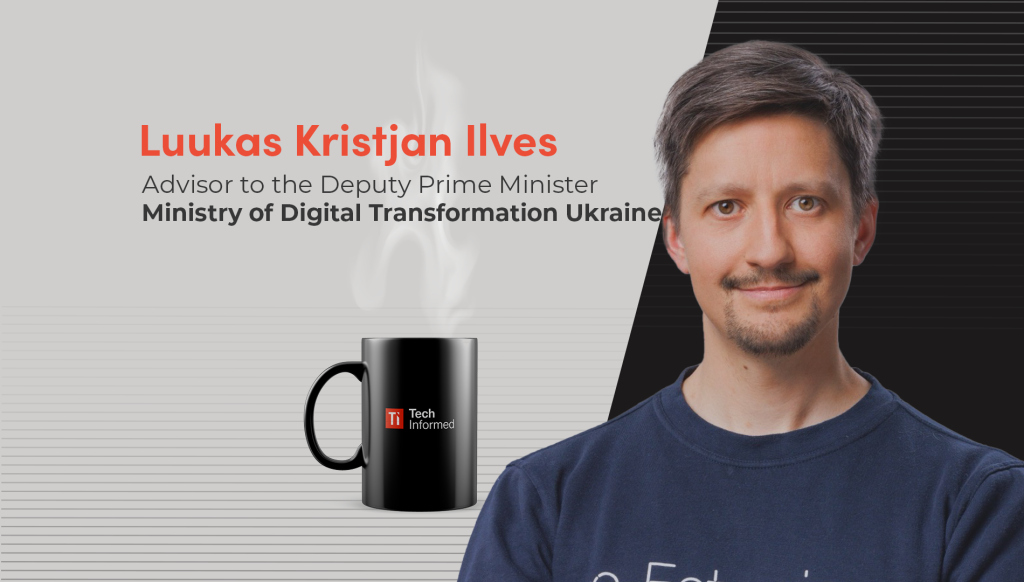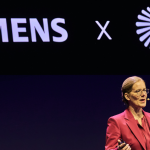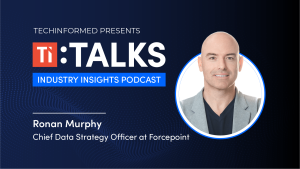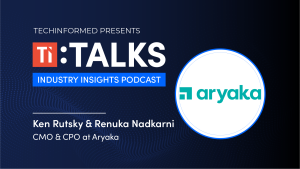

Luukas Kristjan Ilves, advisor to the deputy Prime Minister of Ukraine
Luukas Kristjan Ilves led Estonia’s digital transformation journey and is now advising Ukraine on its own digital efforts, despite the ongoing war with Russia
Estonia may just be a small country in the Baltics with a population less than 1.4 million, but when it comes to technology, it is punching above its weight.
The European country is home to a disproportionately large number of “unicorn” companies (startups valued at over $1 billion), which was fuelled by the success of its first tech giant, Skype, whose founders went on to create other tech firms such as Wise, Pipedrive, and Bolt.
This entrepreneurial, tech-led approach extends to the Estonian government, which was one of the first in the world to move all of its services to digital platforms
It is in the office of Bolt, located in the capital Tallinn, where TI sits down with Luukas Kristjan Ilves, who played a vital role in the digital transformation of Estonia and is now working as an advisor to the Deputy Prime Minister of Ukraine as it looks to carry out its own digital transformation under the shadow of the war with Russia.
Tell us about the digitisation journey of Estonia.
Estonia’s digitisation journey started long before I became involved, but digitisation isn’t a one-time thing.
That initial phase change, from paper documents to digital mediums, had all happened by the time I left university, but that doesn’t solve all of the governance problems.
Everything happening now with AI is, in a sense, the next iteration of digital transformation and the challenge we had in government is around getting everyone to leverage the possibilities afforded by digitisation from a procedural and organisational sense.
There has been a whole lot of relearning around how every element of government works, and it isn’t a one-time thing. This isn’t unique to government either, but the tricky part is, governments are slow, bureaucratic beasts. In the private sector, disruption is the mechanism for change – new entrants come in or market needs shift – but it is very different in government.
What are some of your proudest achievements in Estonia’s transformation journey?
There are two that really stand out right now. One is making that shift to using more AI. While it isn’t an achievement yet, it is a work in progress, but we have been doing a lot of pilot projects since 2018.
One example is SnowAI. We put cameras on intercity buses to create a live feed of the level of snow cover. Then we had to train the algorithm to determine the levels just from a camera on a bus, but it helped us tackle larger snowfalls, which is a really big deal here.
A lot of focus has now switched to generative AI. We had a very bold vision of what you might call a genetic AI for government, really back in 2018/19, but it was too soon, and so we started building a lot of that with the tech stack that was around before GPT3, and the explosion you had in last few years.
The result of that was that it took a while to kind of realize that the technological possibilities had expanded a lot, and that we invested into stuff that, even though it was very fresh, was already legacy.
How has Estonia been able to position itself as a leading tech government?
The humble thing to say about Estonia is that the government as an organisation is not, in any broad, abstract, global sense, amazing. Compare us to an average Fortune 500 company, and they are probably better. We’re just better than other governments. We’ve managed to keep that pace of change going better than most countries do.
I think for a couple of reasons. One, because there’s a sort of the virtue of having a positive expectation. I could go to any senior leader in government, and there was no question to them that doing tech well was important. They may not have always had the right approach. They may have had resourcing issues, etc, but in principle, did they think it was important that they reflect on how technology would enable them to do what they did? Yeah.
You’re now supporting the government of Ukraine. What can you tell us about your work there?
Prior to 2023, the Ukrainians were very good at learning lessons and copying from other countries. They took a lot of lessons from what Estonia did in legislation around identity, and many of the design pattern and visions of how services could work.
But because we were doing that in 2020, they had a lot of young enterprises and start-ups who also had the humility to copy well. But another part – and a lesson that has had to be learned quickly – is around agility.
If you ask what made Ukraine resilient when the war started, it wasn’t all the things that a cyber security a CISO would kind of put into the standard resilience playbook around, you know, redundancy, certification, assurance, standard, etc.
It was that they had the ability, when new unforeseen circumstances presented themselves, to move quickly. So, to move basically the entirety of how government work into the cloud in a matter of weeks, to launch new services in a matter of weeks. And that kind of agility and flexibility has been their superpower.
Has Estonia taken lessons back from Ukraine in the same way Kyiv has learned from Tallinn?
One of the things that was very cool was that Estonia learned from Ukraine’s Citizen App. Even as the war was going on, we put together the Estonian team that was working on the Estonian government app, with the team that had built the Ukrainian one, and took a lot of the lessons there into the Estonian app.
One of the things that was interesting was that the Ukrainians were just super-fast. We would still be, figuratively speaking, editing the meeting notes, and they come back and say, “Okay, we did the bit that we agreed to. What’s next?” The joke I would make is that Estonians, in the 90s, kind of joked about all the Western Europeans being slow, and we suddenly felt like those Western Europeans.
How did you end up being involved in this journey?
My background is in political science, but I grew up mostly in the US. I came back to Estonia to do my military service and decided to stay here.
My first job was in the policy planning department of the Défense – very typical kind of role for an International Relations graduate.
But a few months into the role, the person responsible for cyber policy went on family leave, and Estonia has some of the best family leave policies in the world. But this meant I was handed the cyber portfolio.
So I am not a deep technologist, I am more of a generalist, but it helps to have people like that to work with the specialists – and I think that is important. Obviously, so is trying to understand the tech to a degree is beneficial.
You don’t have to be a nuclear physicist to do nuclear weapons policy, but you do kind of need to have some understanding of the physics and the engineering behind it to make intelligent decisions. And I think it’s the same thing with tech.
That’s actually another thing we are doing with AI, which I am proud of – training kids in AI at schools so that they are equipped to deal with it in the future.
What do you do to relax outside of work?
Well, these days, I have a four and a six-year-old, so I’m not sure I’d call it relaxation, but I spend a lot of time with them, and that’s, you know, fun and stressful. When I have time, I like to go on long runs, no technology other than maybe your smart watch, and just kind of zone out and be present. And one of the things when I get to a new city, it is a way to get to know it better.
As you go on a long run, you get to know the downtown pretty well.
How do you take your coffee
Black, like my soul.
Basically, a dark roast double espresso, like the really dark, syrupy kind of style.







